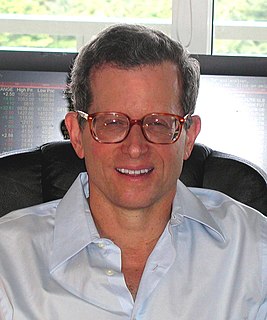A Quote by Maeve Binchy
I couldn't have children, so that's the bad side. But compared to everything else I have, it's not all that terribly bad. I count my winners rather than my losers.
Related Quotes
This is a war universe. War all the time. That is its nature. There may be other universes based on all sorts of other principles, but ours seems to be based on war and games. All games are basically hostile. Winners and losers. We see them all around us: the winners and the losers. The losers can oftentimes become winners, and the winners can very easily become losers.
Interestingly enough, there is a really different dynamic when you're directing something that somebody else has written compared to when you're directing something that you've written. And there's a good and a bad side to it. I think the bad side is that you never feel the same level of connection to the material - you just don't.
The guys that go into the Hall of Fame are the winners, and the losers are the ones who put them in there, and I would like to see some of the great losers through the years be in the Hall of Fame. I know that that's probably impossible, but you've got to give those losers credit, they made the winners.
Look at the way liberals name things. "Net neutrality." It's like Switzerland! They don't take sides, everybody's fair, everything's the same. It's not what it is. Net neutrality rules are anti-consumer and anti-competitive. By definition, liberals don't believe in competition, and you know that. Competition is the root of all evil, as far as leftists are concerned, 'cause there are winners and there are losers, and the losers are sad and disappointed, and that's unacceptable. So everything must be the same. Nobody can have more than anybody else.
The silver lining of Brexit and Trump is that it has undermined the perception that globalization is an unstoppable force, whether or not we think it is a good thing or a bad thing. There have always been losers and as well as winners in this process, and cultural minorities have been among the most vulnerable losers. Now that sizable numbers of people in the most advanced economies have made their grievances felt in a fashion that is hard to ignore.




































